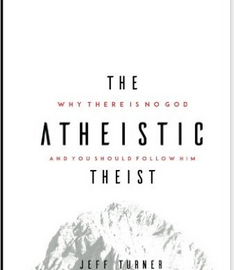Today, I would like to share another excellent post by one of my Facebook friends. This is by Barry Smith, a man whose honesty and faith walk parallel mine closely. I won’t do a long introduction, so over to Barry:
At a moment of deep disappointment while attending Bible College I cried out to God and said “I will trade everything I will ever be if you will teach me one thing. How to love.” What? You attended Bible College and didn’t love? Yep.
You see I was devoted to truth. And in the battle that rages for truth sometimes love takes a back seat. At least it did for me. I had convinced myself that speaking the truth was in fact love. Some of my friends even referred to me as ‘Prophet’ not because I saw what others didn’t. But because I would boldly deliver the truth no matter how cutting or who I wounded with my harshness. I ‘loved’ you enough to speak the truth even if it killed you. I’m not proud of this, but you need to hear this. There is truth that is devoid of love. And it cuts and wounds those who need your love the most.
Being dedicated to truth I was forbidden to love others unconditionally because I couldn’t risk devaluing truth by making someone think I condoned their sin. You see, crusaders of truth must be able to judge right from wrong which so easily spills over into judging others. Every time I would do this intellectually I felt satisfied, but my heart wasn’t satisfied.
Fast forward 25 years. In this in between time I searched for this elusive love I knew I needed. Truth would comfort me at times but it was cold. It lacked the warmth that real love offers. There is truth that brings destruction. There is also truth that brings life.
I was in a predicament because I gained my authority for truth from the Bible. Yet this same Bible told me that if I didn’t have love, I had nothing.
Then one day I was asked to do something that I intellectually did not agree with. My wife was in the same place (boy do I thank God for her). My understanding of what the Bible taught me conflicted with my heart. Being a warrior for truth this was a tough place to be. Around this same time I watched a series of documentaries. The first one I saw was called ‘Furious Love’. God absolutely body slammed me. Something inside me cracked. An awakening had taken place. I could sense this was what I had been searching for. My wife and I both ‘knew’ that we had to obey the voice inside of us that made it clear “you must do this”. I put aside for the first time in my life what I knew to be truth in order to obey the voice in my heart. I did so thinking I was doing this for someone I loved. The impact it made on them I honestly don’t even know. But I was forever changed.
Obeying the voice began an avalanche of revelation in which I discovered God is not angry with humanity. He would rather die for it than condemn it. He has chosen not to hold our sins and shortcomings against us. For the first time I could not only give lip service to the fact that He is good. I knew with everything I was that He was in actuality good. When we see a ‘prostitute’ our Heavenly Father sees a daughter. We see a drug addict He sees a son. His goodness far exceeds our comprehension.
Finally for the first time I not only knew unconditional love. But I also knew how to share it. I was no longer forbidden to love others by the Bible I knew as a book of truth. I was now compelled by the Bible, and I knew it was far more interested in love than truth. I was finally free. Feeling no obligation to judge others. No longer worried if they thought I condoned their ‘sins’ or not. I was free to love and let the judge of the universe be their judge.
I also discovered that this judge who taught me how to love was the one who encouraged me to defy the truth of the Bible. His judgment was one of restoration and not retribution. Of transformation and not condemnation. I know this may make you bristle but this isn’t truth bound between leather covers. This is the way the truth and the life that explodes into humanity’s reality and offers hope. Shouts from the mountain top that God is good and thinks more highly of you than you dare to believe.
Are you hurting? There’s hope. Are you worn out? There’s rest. Are you angry? There’s joy. Have you failed to live up to others expectations? You’re not alone. Do you want to be free? You may have to let go of something. Jesus said you search the scriptures because within them you think you find life. Yet you refuse to come to me to have life.
If there is anything in your life that prevents you from valuing every single person you meet as someone God unconditionally accepts. Let it go! Even if it means sacrificing your own understanding of something as valuable and worthy as the Bible. If anything contradicts love, follow love. The opposition I faced as a truth warrior was nothing compared to being a love addict. But am I ever addicted… Thanks for reading. I love you all.









